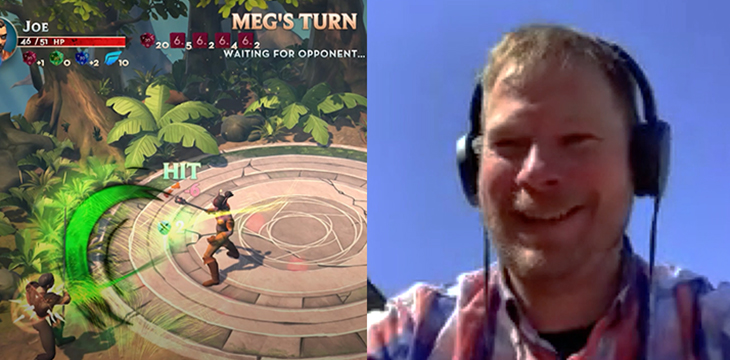
|
Getting your Trinity Audio player ready... |
It’s been a busy couple of months for the gaming platform company Kronoverse. They received fresh investments from Persimmon Hill Ltd as well as a third investment from Calvin Ayre, founder of Ayre Group and CoinGeek. They are also set to announce the open beta date for their skill-based fighting game CryptoFights.
David Case, Kronoverse’s Chief Architect, said that their platform will enable developers to build on the Bitcoin SV blockchain rather than the traditional networking layer of cloud servers. For gamers, it’s a new era of digital ownership of in-game assets and the chance to profit from trading items through a marketplace.
After two and a half years of research and development, building their flagship game CryptoFights, Kronoverse is fully utilising BSV’s software development capabilities: “I fell in love with blockchain and the whole concept of having these immutable ledgers,” said David. “That brings so much value to competitive gaming because you’re not relying on an authority of some company’s database to tell you what happens.”
But why BSV over the other blockchains? It comes down to scalability. As with many developers, Kronoverse’s journey started on Ethereum. But the Ethereum main chain was “very slow and very expensive” and David found its Proof of Authority system (an algorithm that increases the speed at which transactions are validated) was unsatisfactory compared to the principle of Proof of Work which governs the BSV blockchain: “as you start building these other things that ride on top of it, well then you end up having to recreate the blockchain again.”
“In Ethereum you have this concept of ‘every validator needs to process every transaction in the exact same order’ – which means that from a development standpoint you’re always single threaded.”
It was Bitcoin SV’s UTXO model which was the clincher. UTXOs (unspent transaction outputs) are processed continuously and are responsible for beginning and ending each transaction. “Rather than being single threaded you can be as multithreaded as there are different UTXOs in the database, so you can process billions of things at the same time” said David. That eliminates the speed limitations they experienced on other blockchains.
As well as the fixed protocol, “the main killer feature on BSV that put it over the top, was opening up the opportune storage space. So, instead of having 200 bytes of data in one transaction, we can now put 100,000 bytes of data” allowing Kronoverse to put real, useful information on chain. In practical terms, that means each move a player takes in CryptoFights is permanently stored, publicly, on the blockchain.
The source code to the game is also publicly available on the blockchain, which is revolutionary in eliminating in-game cheating. For gamers who purchase in-game items, the Kronoverse platform will allow true ownership of their gaming assets. In traditional centralized gaming, you never actually own the items that you purchase. For example, if there is a server issue or a gamer’s account is compromised or suspended, players risk losing their items. On the blockchain, purchased items will remain in a player’s control, even if they’re no longer playing a specific game, allowing them to trade or sell the items for profit. Kronoverse’s marketplace provides a space for trading gaming items but players can choose whether to use it or trade elsewhere.
Understanding how to work on blockchain can seem like a different language for game developers, David said. But the Kronoverse platform unlocks the game developer experience on BSV. The platform provides developers with the tools to build their games on the blockchain by allowing them to use simple JavaScript without having to worry about blockchain technicalities.
Listen to Natalie Mason’s interview with David Case in full, on this week’s CoinGeek Conversations podcast:
Watch the video.
You can also check it out here:
– Watch on the CoinGeek Conversations YouTube playlist
– Subscribe on iTunes
– Listen on Spotify
– Visit the CoinGeek Conversations website
– Search for “CoinGeek Conversations” wherever you get your podcasts

 11-22-2024
11-22-2024


